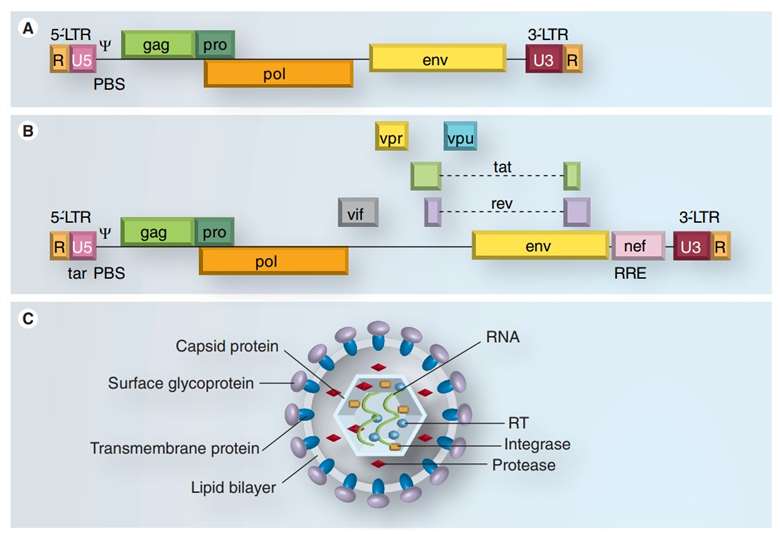Retroviruses are single-stranded RNA viruses capable of converting RNA to cDNA by the action of reverse transcriptase, which is then amplified by the action of proteases such as DNA replicase, transcriptase, and translatorase. Researchers usually design replication-defective viruses based on certain properties of retroviruses to produce expression vectors capable of carrying specific target genes, known as retroviral vectors.
Retroviral vectors are currently the most widely used method for human gene transfer due to their relatively high efficiency of gene transfer and their ability to randomly insert and stably integrate exogenous genes into the host cell genome for sustained expression. Among these, lentiviral vectors and gamma-retroviral vectors have been widely used in gene therapy, for example, to introduce Chimeric Antigen Receptor (CAR) genes into T cells for the targeted killing of tumors by CAR-T cells. Gene therapy has gradually replaced currently available therapies for rare genetic diseases, such as enzyme replacement therapies, autologous transplantation, and antibody therapies.
For more:
https://www.protheragen.us/dev....elopment-of-retrovir




